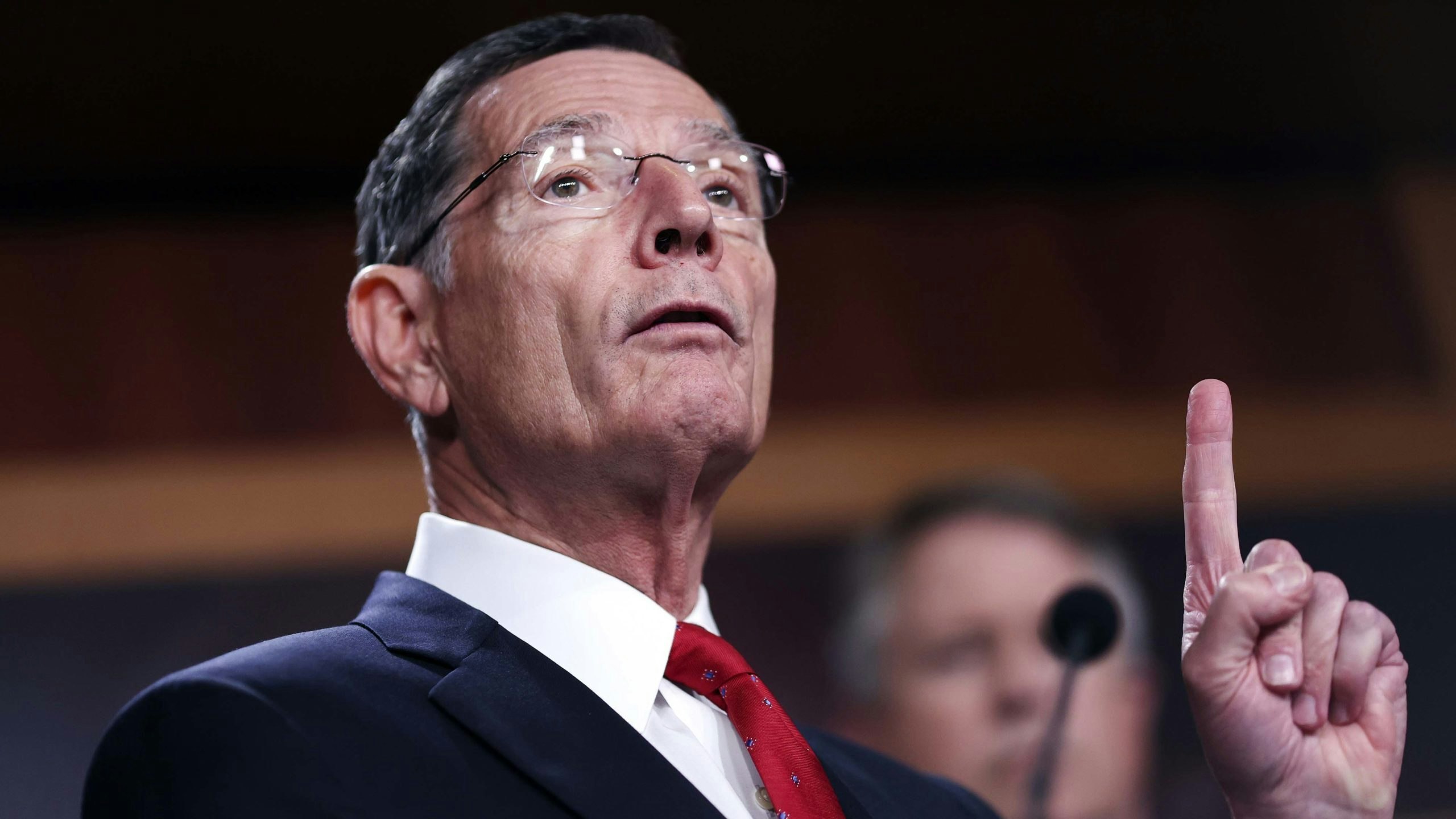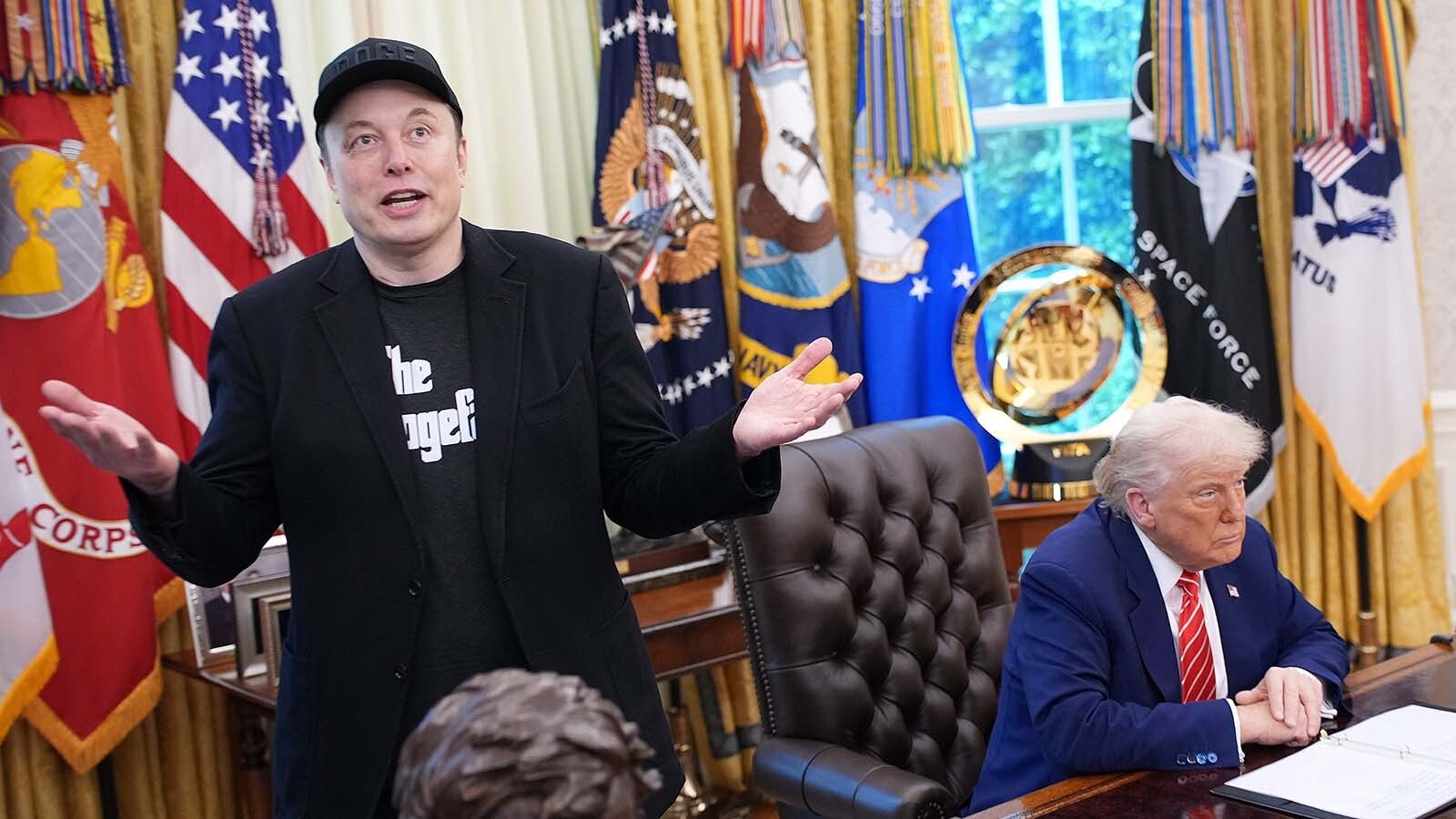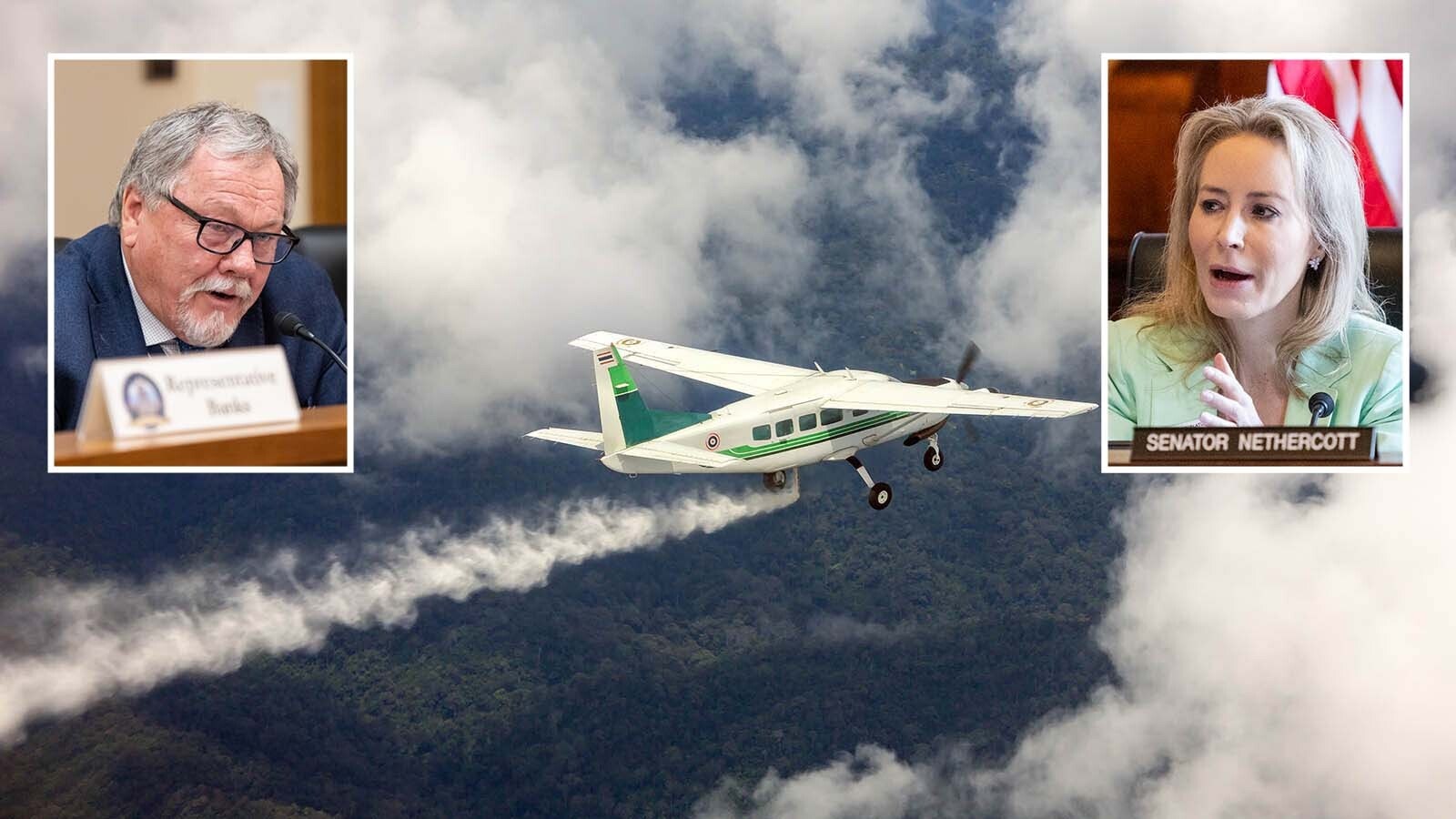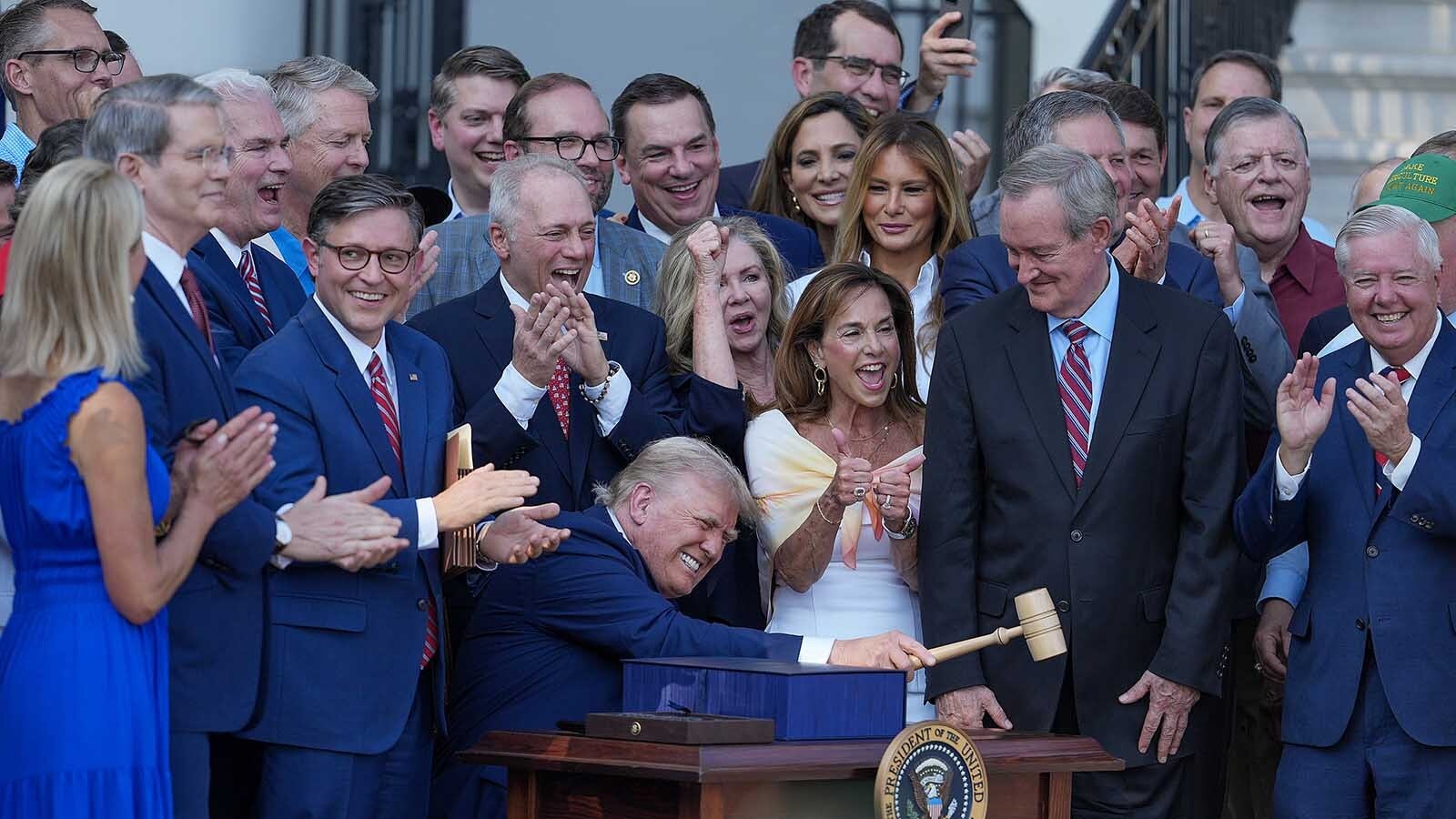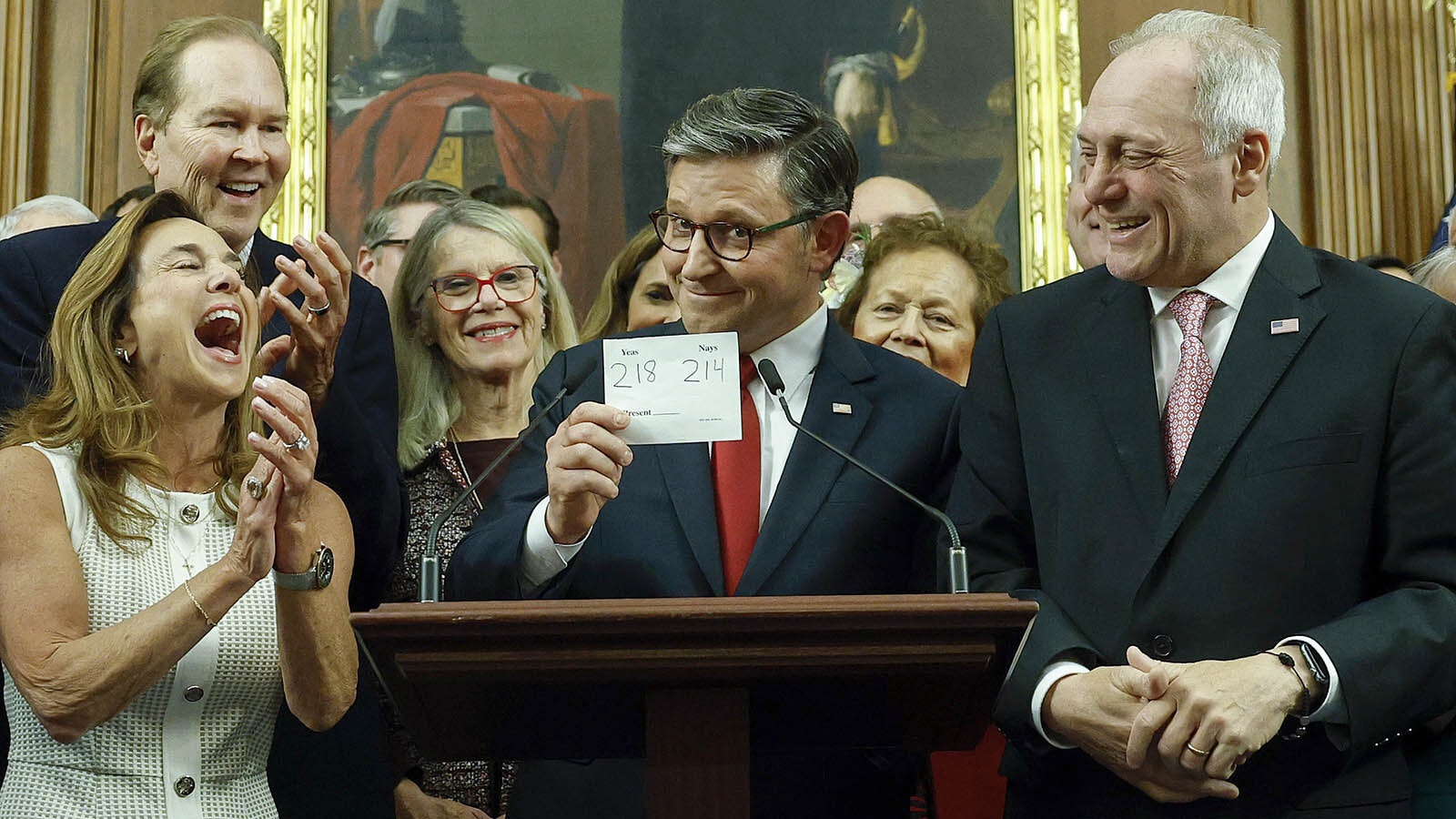By Leo Wolfson, State Political Reporter
Leo@Cowboystatedaily.com
U.S. Sen. John Barrasso, R-Wyoming, opposed ratifying climate legislation that would have given China an extra decade to produce polluting hydrofluorocarbons (HFC) while holding the United States to much stricter standards.
“This places the United States at a competitive disadvantage to China for 10 additional years,” Barrasso said in a Wednesday speech on the Senate floor.
Barrasso spoke against having the U.S. join the Kigali Amendment to the Montreal Protocol on Substances that Deplete the Ozone Layer. The amendment would treat China as a developing country, which gives it additional time to continue producing HFCs.
“There is no excuse for any senator to give China a handout at the expense of the American taxpayer and American hardworking families,” he said.
The Senate ratified the international climate treaty, the first in three decades, with a rare bipartisan majority. The U.S. is now joins 136 other nations to join Kigali.
HFCs are man-made industrial chemicals used in refrigerators, air conditioners, fire extinguishers and insulation. They are considered a major contributor to greenhouse gas emissions.
Barrasso wrote an amendment conditioning Senate approval of Kigali on the removal of China from being defined as a developing country. Barrasso’s amendment defines China as a “developed” country.
“So, senators have some decisions to make,” Barrasso said. “Are you going to vote to allow China to play by a different set of rules? Are you going to vote to put America at a competitive disadvantage? Are you going to vote to continue to give American tax dollars to China?”
Barrasso’s amendment passed by an overwhelming margin, but he still voted against the bill.
According to Politico, Barrasso’s amendment requires the U.S. State Department to file an amendment with the United Nations reclassifying China as a developed nation but does not require successful passage of that amendment.
Prior to Barrasso’s push, the Kigali Amendment would have required developed nations like the United States to reduce production and consumption of HFCs to about 15% of 2012 levels by 2036. Nationslike China, Brazil and all of Africa would have had until 2024 to enact an HFC freeze.
Under the passed legislation, some of the world’s hottest countries like Bahrain, India, Pakistan, Iran, Saudi Arabia and Kuwait still have the most lenient restrictions, given until 2028 to reduce HFC levels.
If the Kigali pact achieves its goals, scientists estimate it would prevent up to about 1 degree Fahrenheit of warming by the end of this century.
Developed or Developing?
Under the “developing” designation, Barrasso said China would be eligible to receive money from a United Nations multilateral fund set aside for developing nations. America is the largest contributor to thefund.
“Nearly $1 billion American tax dollars have already gone into this United Nations slush fund,” he said. “Has China contributed? No, more than $1.4 billion from the fund has already gone to China that we have contributed to because we are (a) developed nation and China legally by this treaty is still developing.”
Barrasso said he also finds it hypocritical that the U.S. borrows money from China yet would provide it money as a developing nation.
“This makes zero sense,” Barrasso said. “Even to the high school kids it makes zero sense. With Kigali, it will mean more and more American tax dollars going to communist China.”
China is considered to have the second largest economy in the world.
Barrasso said it’s unnecessary for the U.S. to make another U.N. treaty commitment when it already signed bipartisan HFC legislation, the American Innovation and Manufacturing Act, two years ago.
“Our own laws can be amended, repealed or replaced. Depending on the impacts and costs, the U.S. can make changes quickly,” Barrasso said. “It is much harder, if not impossible to change international treaties. In fact, there is no withdrawal clause in the Kigali amendment.”

